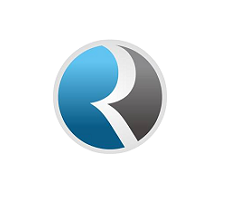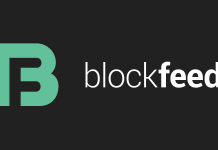Interview with Gabriel Rigo, founder of RigoBlock
Can you tell us about yourself and your role in Rigoblock?
Former hedge fund treasurer, head of investment, MSc Finance from Bocconi.
What is Rigoblock?
Ethereum based decentralized pools of digital tokens protocol and platform for decentralized asset management. A product for traders to organize their Ether/tokens holdings and their investors through an automated smart contract protocol.
What are the conditions to create a fund?
The protocol is intended to allowing even for micropools, allowing access to talented traders who want to create a track record.
What settings do the fund creators have control over?

They can set a fee on subscriptions and redemptions, which is 0 by default, as the protocol has 0 commissions. Everything else is sorted out automatically by code.
What are the fees to create a fund for the fund creators?
No fees, 0. Just the gas cost of executing the transaction on the blockchain.
How will the fund tokens be distributed?
No distribution of tokens for the pools, users buy tokens of a pool and later sell them. Rigo tokens will be distributed according to the Proof-of-Performance algorithm to traders. Rigo tokens will also be distributed to early contributors.
Will the fund creators be vetted/checked by Rigoblock?
Rigoblock provides the backend technology. Platforms offering the rigoblock protocol might be performing vetting procedures. Under certain conditions users might be required for further checks.
In what assets can the funds’ creators invest in?
Digital tokens, our view is that everything will be tokenized, from real assets to derivatives.
What mechanism will be in place to prove the ownership of assets?
Smart contracts automatic reconciliation
What information/analytics will the token holder have on the funds?
Some basic and graphic information, like value, address,.. Further analytics will be offered by external service providers.
How will performance be measured and communicated?
Through external service providers. The protocol is intended as a base backend layer for pools of digital tokens. Anyone can build applications on top of our backend.
How will the fund tokens be traded?
Not disclosed yet, competitors are watching us. It will be disclosed though.
What will the fee for entry, exit and management of these funds?
0, none, nada. No management fee. No performance fee. No distribution fee. Traders can, at their own discretion, set an entry/exit fee.
Will the Rigoblock decentralised exchange be allowed to trade other coins than the fund coins?
We aim at being the reference point for decentralized pools of tokens. External exchanges are going to be plugged to our pools of tokens. Our exchange allows leveraged trading of cryptoswaps, but again, we’d rather plug in many decentralized exchanges and focus our energies on the pools.
What is the best business advice you have ever been given?
Do just a few things, become the best in your field, and stay focused.
What is the use of the Rigblock token?
Rigo tokens are needed to participate to the incentives mechanism. Without them, users cannot earn on the platform.
How will Rigoblock sustain itself in the long term?
There is an 80/20 split ratio between the trader and RigoBlock (the actual ratio will be decided by token holders)
When will Rigoblock go live? (or if it is live) How many Mircopools are currently running?
At the moment we have 61 micropools on the kovan testnet, release on mainnet has still not been finalized. We want to manage expectations and keep them low, this is why we are releasing our platform before offering our tokens. We are adding an airdrop feature in our testnet platforms and very shortly users will be able to earn Rigo tokens for free just by using the platform.
Will the pools be able to buy only ERC20 tokens?
At the beginning it will be ERC20 tokens and ERC20 derivatives. This is a question which can be better answered by decentralized exchanges and we are closely monitoring their progress.
For more information:
- Rigoblock website
- Rigoblock whitepaper
- Take the Rigoblock dApp for a spin: https://pool.rigoblock.com/
We thank Gabriel Rigo for the interview.











